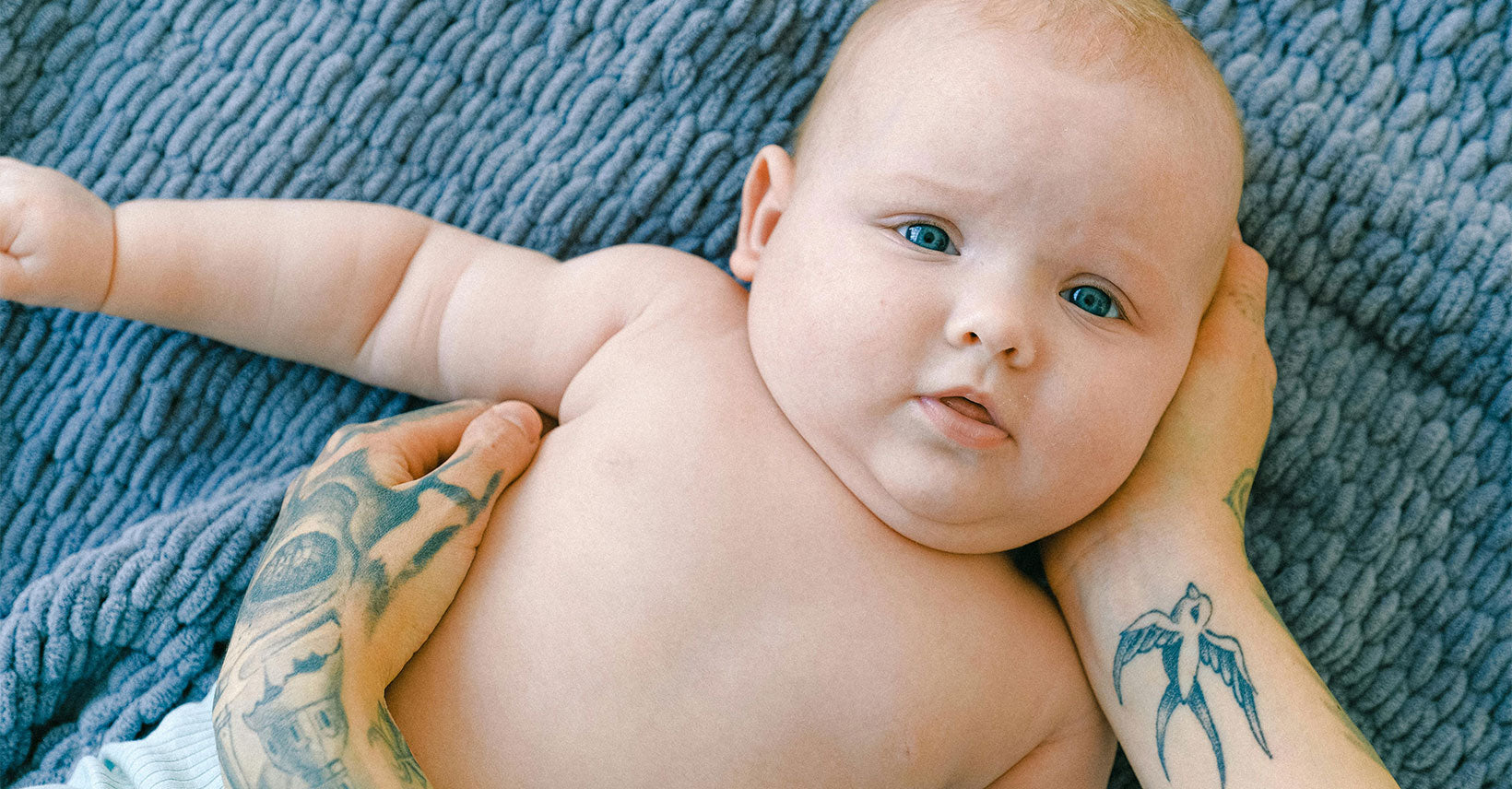


Newborns don't sweat much, because their sweat glands are not fully developed, especially in the first few weeks of life. While adults regulate their body temperature by sweating, newborns rely more on other mechanisms, such as breathing and transporting blood to the skin's surface to stay cool. Parents often notice their little ones feeling hot but not sweating.
Newborns do sweat but in a different way than older babies and adults. Their sweat glands are still developing, so they don't produce much sweat in the first few weeks of life. Most newborns’ sweat glands are located on the forehead, and parents may notice sweating on the forehead if it occurs.
However, newborns don't sweat much on other parts of their bodies either, as their sweat glands are not yet fully active. As newborns grow and their bodies mature, their sweat glands become more functional and they begin to sweat like adults.
There are several reasons why newborns sweat, and understanding them can help parents know what is normal and what may need attention. Here are some of the main reasons:
Newborns sweat to help regulate their body temperature. Even though they don't sweat as much as older children or adults, they still try to cool down when their bodies get too hot. The sweat glands on their foreheads are usually the most active and can help release heat and keep them comfortable.
If a newborn is in a warm environment, their body may trigger a sweating response. Overdressing or a room that is too hot can cause them to sweat, especially on the forehead. Since newborns have a harder time regulating their body temperature, they are more likely to overheat, and sweating is their body's way of trying to control their temperature.
As the newborn's nervous system matures, it begins to control the sweat glands more effectively. In the first few weeks, the newborn’s system is still figuring things out, so he or she may sweat even when it's not strictly necessary. This is the body learning how to maintain proper balance and respond to temperature changes.
Newborns can also sweat as a result of emotional or physical stress. For example, prolonged crying or discomfort may cause sweating. This type of sweating usually appears on the forehead or face and is a natural response to the stress experienced.
All of these causes are normal signs of bodily functions as the newborn adapts to life outside the womb.
When newborns sweat, there are some practical strategies parents can use to help keep them comfortable. Here's what to do:
If the room feels too hot, parents can try lowering the temperature or using a fan to circulate the air. A comfortable room temperature for newborns is usually around 68 to 72 degrees Fahrenheit. Keeping the room temperature within this range will help prevent overheating and minimize sweating.
If your baby is sweating, he or she may be overdressed. Parents can remove a layer of clothing or replace it with a light swaddle or sleep sack, breathable fabrics such as cotton. In general, it is best to dress a newborn baby in one more layer of clothing than an adult would wear in the same environment. However, if your baby is sweating more, you may need to reduce the clothing.
The bedding your newborn sleeps in can also affect their body temperature. Using lightweight, breathable sheets and avoiding heavy blankets can help. Parents may also want to consider using swaddling blankets made of breathable fabrics, which provide comfort without causing the baby to overheat.
Sweating can sometimes be a sign that your newborn is too hot. Parents should check for other signs of overheating such as flushed cheeks, shortness of breath, and heat in the chest or back. If these signs are present, be sure to cool down your baby by adjusting his or her environment or clothing.
If your newborn sweats a lot, they may lose some water, although this is usually not enough to cause dehydration. However, frequent breastfeeding or bottle-feeding can help ensure they stay hydrated. Parents should keep an eye on their babies to make sure they are eating well and that their diapers are moist enough.
Skin-to-skin contact is another way to regulate your newborn's body temperature. Holding the baby on the parent's chest can help stabilize the baby's temperature naturally. If the baby is sweating a lot, parents can try this method without thick clothes or blankets in between.
All of these methods can help keep your newborn comfortable and reduce sweating. It's always important to pay attention to your baby's cues and make adjustments as needed.
In conclusion, newborns do sweat, but their sweat glands are still developing, so they don't sweat as much as older children or adults. Sweating in newborns is usually limited to the forehead and is a way for the body to regulate its temperature. Parents can help by focusing on their baby's comfort, adjusting clothing, and room temperature, and making sure they stay hydrated. Understanding these factors can help parents keep their newborns comfortable and healthy.

Lily Hou
An expert in sleep sack design, is a valued contributor to Kaiya Baby's blog. With a strong background in baby sleep bags and maternal care, she is highly regarded for her professionalism. Lily prioritizes baby comfort and safety in her designs, using high-quality materials. Her insightful articles on sleep bags have been featured in reputable publications and have gained a significant readership. Trust Lily to help you create a comfortable and safe sleep environment for your baby, backed by her proven track record in the industry.
Leave a comment
This site is protected by hCaptcha and the hCaptcha Privacy Policy and Terms of Service apply.